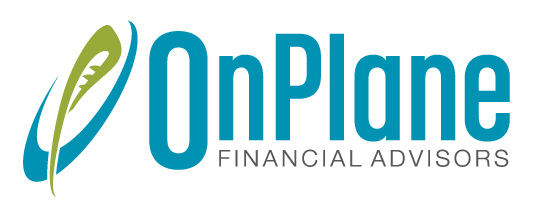The other day I was talking with a couple. They were retired and, given the line of work I'm in, I asked if they minded a few questions about their journey to retirement. They chuckled and obliged. I wasted no time. First question right off the bat:
"Tell me, what was the biggest obstacle for you when it came to saving money for your retirement?"
They chuckled again. A handful of seconds later came their response:
"To be honest, we got lucky. We never intended to save money. It just happened somehow. We didn't have a plan, we just spent money. And then maybe 35 years or so later, we decided to retire. I guess you could say it was on accident."
I was flabbergasted.
Reading this, I'm sure you are too. Wait, what???
Actually, that conversation never happened. I made it up.
I think when you read it, I imagine a sense of "WHAT THE H*LL?!?!" rushing through you. Like, huh? How DID they do it?
And that's my point.
When you read about folks who started and ran successful businesses, it's almost never on accident. Sure, they might have stumbled on an invention or product by accident, but creating the successful business is NEVER on accident. It's intentional.
Just as you never hear about folks retiring on "accident." It's always intentional. Sound financial decisions are always intentional.
-The decision to start saving money? Intentional.
-The decision to save (more) money? Intentional.
-The decision to protect your balance sheet? Intentional.
-Even the decision to work with a financial advisor…intentional!
For successful business owners, research(1) shows a consistent routine can help in achieving higher levels of success.
According to the psychological principle of consistency, people generally want to back up their previous commitments, or stated beliefs, with congruent actions. And consistency, or being intentional, allows for measurement & creates accountability.
These would be our actions as stated above.
When it comes to financial planning and your retirement, those two characteristics are important. Measurement can be broken down into any number of financial categories. From a broad perspective, where your money goes and why. In a more detailed context, measurement can equate to budgeting or your rate of savings.
Accountability is maybe the most important aspect of your financial life. Remember, no one retires "on accident." See Steve Erkl above. So we have to be intentional. And if we don't have any method of measuring how we stay accountable to our current and future selves, how will we get where we want to be?
From a measurement perspective, we can run projections using any number of online retirement calculators. Often those calculators project our current savings using a linear (flat) rate of return. Life isn't a straight line, and neither are your investments. This also asks us to guess err I mean predict how much money we'll need 20, 25, 30 years from now. As well as taxes & inflation. Impossible.
The best measurement to use is your rate of savings. This is a financial factor we can control. And 15-20% (or more) of your pretax income is a good guide.
Additionally, you can measure progress year over year:
What did your balance look like last year vs. this year?
Did you pay down all of or x% of your debt?
Was your emergency fund 50% funded last year vs. 75% this year?
Are you saving more money as a percentage of your income?
Doesn't matter what the goal is, be sure to celebrate and pat yourself on the back for the "wins" and positive progress. Because no one else will!
For accountability, you can choose any number of routes.
Do it yourself is one way. I don't love this route for most people because it's easy to lie to ourselves (see: consistency, above). Harder to lie to others or feel like we're letting them down. So if you go the do-it-yourself route, write your goals down. Even better, verbalize them to a friend or co-worker. And if you really want a support network, put your goal(s) out there on social media. Create the accountability.
Maybe you're not a do-it-yourself type. No worries.
A good financial planner can help you organize and measure your financial life. This relationship also creates accountability so you can stay on track, or adjust and adapt when life happens.
Regardless of the route you choose, one of the best methods of consistency is automation. And you KNOW I like automation.
Automate your bill payments
Automate your savings habits
Automate those transfers to get extra cash out of your checking account so you can't won't spend it
Instead of being an Ostrich, be intentional with these THREE keys:
Measure your progress and celebrate the wins
Create accountability so you can stay on track
And automate, automate, automate
As you think about your financial life, remember no successful business gets there on accident. And trying to retire on accident will likely lead to a lot of accidents along the way.
Looking to avoid some accidents on your path to retirement?
1 W.P. Carey News and Research: The gentle science of persuasion, part four: Consistency
